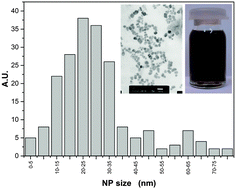Fractional Debye–Stokes–Einstein behaviour in an ultraviscous nanocolloid: glycerol and silver nanoparticles
Abstract
One of the major features of glass forming ultraviscous liquids is the decoupling between translational and orientational dynamics. This paper presents studies of this phenomenon in glycerol, an accepted molecular glass former, concentrating on the impact of two exogenic factors: high pressures (P) up to the extreme 1.5 GPa and silver (Ag) nanoparticles (NPs). The analysis is focused on the fractional Debye–Stokes–Einstein (FDSE) relationship: σ(T,P)(τ(T,P))S = const, linking DC electric conductivity (σ) and primary (alpha, structural) relaxation time (τα). In glycerol and its nanocolloid (glycerol + Ag NPs) at atmospheric pressure only negligible decoupling (S ∼ 1) was detected. However, in the compressed nanocolloid, a well-defined transformation (at P = 1.2 GPa) from S ∼ 1 to the very strongly decoupled dynamics (S ∼ 0.5) occurred. For comparison, in pressurized ‘pure’ glycerol the stretched shift from S ∼ 1 to S ∼ 0.7 took place. This paper also presents the general discussion of FDSE behavior in ultraviscous liquids, including the new link between the FDSE exponent, fragility and the apparent activation enthalpy and volume.


 Please wait while we load your content...
Please wait while we load your content...